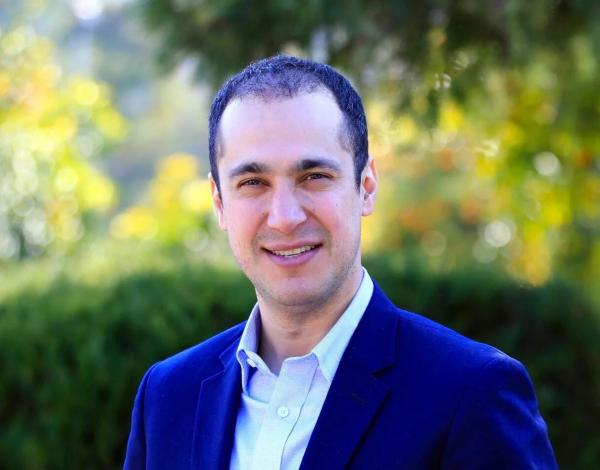
Kaveh Madani, the renowned environmental scientist, activist and former vice president of the United Nations Environment Assembly Bureau, is joining the City College of New York-based CUNY Remote Sensing Earth Systems Institute as a research professor.
“Dr. Madani brings to CUNY CREST, a unique combination of experience in high-level policymaking, prominent practice-relevant research, and high-impact societal interactions,” said Reza Khanbilvardi, CUNY CREST director and professor of civil engineering in CCNY’s Grove School of Engineering. “He’s an international authority on modeling and managing complex human-nature systems who’s also served as deputy head of Iran’s Department of Environment.”
Khanbilvardi hailed Madani’s outstanding record in bridging the gap between academic theory and practice by addressing progressive and socially significant problems. He’s also communicated his findings not only to other researchers and policy makers, but to the public in order to raise awareness around key environmental issues globally.
“Dr. Madani brings a very unique strength and capability to CUNY-CREST,” added Khanbilvardi. “And we are extremely excited that he is joining our Institute at a time that climate change, its impact on society, and efforts to integrate environmental justice into our scientific outputs are at the top of the national agenda to protect vulnerable communities to extreme events. .
Madani's research portfolio spans the areas of engineering, natural sciences, systems analysis, economics, public policy, politics and behavior. He works at the interface of science, policy and society on complex human-nature problems involving water, energy, food, climate and environment. His research in North America, Europe, Africa, Asia and Middle East covers issues such as water management, environmental policy, diplomacy and justice, energy systems, food security, climate change impacts and adaptation, sustainable development, green recovery and transboundary conflicts and negotiations.
He has, in addition, been involved in global climate change negotiations and has been a consultant to the United Nations on inclusive and just green recovery.
Madani is a Fellow of the American Geophysical Union (AGU) and the Environmental and Water Resources Institute (EWRI). He has received numerous awards including the New Face of Civil Engineering (ASCE), Hydrologic Sciences Early Career Scientist Award (AGU), the Arne Richter Award for Outstanding Young Scientists (EGU), the Walter Huber Civil Engineering Research Prize (ASCE), and the Ambassador Award (AGU).
Reuters profiled Madani in its 2021 Hot List of Climate Scientists.
He holds a PhD from the University of California, Davis, held a tenured faculty position at Imperial College London and has taught at several leading academic institutions around the world.
About the CUNY CREST Institute
The CUNY Remote Sensing Earth System Institute, headquartered at the City College of New York, was officially approved by CUNY Board of Trustees in June 2010. The goal of the Institute is to serve as a CUNY-wide Institute of Excellence in Advancement of Earth System Sciences and application of Remote Sensing Technology as well as other emerging technologies. The Institute serves as a major hub of outstanding interdisciplinary research across CUNY colleges. The institute is designed to be a collaborative environment from faculty and scientists from different CUNY campuses to be able to work together in a variety of topics related to earth system sciences. The institute’s collaborative environment will enhance the advancement of science at CUNY and will create opportunity to attract external support.
About the City College of New York
Since 1847, The City College of New York has provided a high-quality and affordable education to generations of New Yorkers in a wide variety of disciplines. CCNY embraces its position at the forefront of social change. It is ranked #1 by the Harvard-based Opportunity Insights out of 369 selective public colleges in the United States on the overall mobility index. This measure reflects both access and outcomes, representing the likelihood that a student at CCNY can move up two or more income quintiles. In addition, the Center for World University Rankings places CCNY in the top 1.8% of universities worldwide in terms of academic excellence. Labor analytics firm Emsi puts at $1.9 billion CCNY’s annual economic impact on the regional economy (5 boroughs and 5 adjacent counties) and quantifies the “for dollar” return on investment to students, taxpayers and society. At City College, more than 16,000 students pursue undergraduate and graduate degrees in eight schools and divisions, driven by significant funded research, creativity and scholarship. CCNY is as diverse, dynamic and visionary as New York City itself. View CCNY Media Kit.